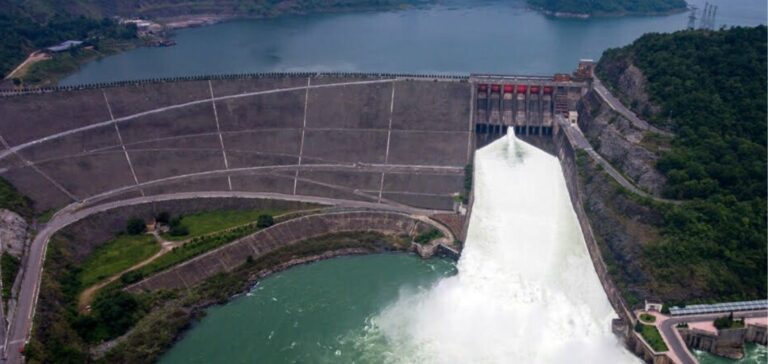Vietnam is at an energy crossroads, facing increasing challenges in expanding its power generation capacity.
As the country strives to meet fast-growing energy demand, estimated at over 7% a year, it also faces obstacles in developing its traditional energy infrastructures, including coal, gas, wind and hydro.
Against this backdrop, the Vietnamese government is considering reviving the development of nuclear power and increasing solar capacity, solutions that could play a crucial role in the country’s energy transition.
The Ministry of Industry and Trade (MoIT) was recently tasked with reviewing the Electricity Development Plan (PDP VIII) for the period 2021-2030, with a vision to 2050.
This reassessment follows delays in the implementation of key projects, notably those related to liquefied natural gas (LNG) and offshore wind power.
The MoIT’s mission is to accelerate the legal framework required for these projects, in collaboration with other ministries and state-owned enterprises.
Challenges in energy development
Delays in energy projects could have repercussions on the electricity supply needed to support Vietnam’s economic growth.
The government has stressed that a 12% to 15% increase in electricity production is essential to support this growth.
In response, a working group has been set up to finalize a draft electricity law, which is expected to be submitted to the National Assembly for approval.
This bill will include regulations for the development of renewable energies, including new energy sources.
The MoIT has also been tasked with studying countries that have successfully developed nuclear power to improve baseload capacity and reduce emissions.
By 2016, Vietnam had abandoned an ambitious project to build nuclear power plants, due to competing energy prices, lower-than-expected electricity demand and high construction costs.
However, the need to diversify energy sources is prompting the country to reconsider this option.
Status of energy projects
Commercial electricity sales in Vietnam rose by 13.7% in the first seven months of 2024, exceeding expectations for annual growth of 9.1% for the period 2021-2025.
However, the development of power generation capacity from coal, gas, offshore wind and hydropower has fallen short of expectations.
PDP VIII limits coal-fired power generation capacity to 30.13 GW by 2030, while allowing the development of projects already under construction.
The MoIT noted that new coal projects are not viable due to local opposition and lack of financial support.
At the same time, the plan aims to increase hydropower capacity to 29.346 GW, but this involves risks associated with natural disasters and climate change.
Achieving the target of 21.880 GW of wind power by 2030 also looks difficult, with only 3.061 GW currently in operation.
Outlook for solar and nuclear energy
For LNG, Vietnam plans to develop 13 gas-fired power plants with a combined capacity of 22.4 GW by 2030, but none are currently operational.
The first gas power plant project, Nhon Trach 3, is due to start trials in October, followed by Nhon Trach 4.
However, the realization of other projects between now and 2030 seems compromised, raising concerns about the country’s energy security.
A short-term solution could be the expansion of solar power, which can be installed quickly.
However, PDP VIII does not make solar power a priority, with only 1.5 GW of new capacity planned by 2030.
The MoIT plans to further promote solar energy, which could play a key role in meeting the country’s growing energy needs.
Considerations on nuclear energy
The development of nuclear power is also seen as a viable option.
Currently, 32 countries use nuclear power, which accounted for 9.1% of global electricity production in 2023.
Although Vietnam has not included nuclear power in PDP VIII, it could consider small modular reactors (SMRs), including floating reactors, with a capacity of 300 MW each, which could be built in 24 to 36 months.
This approach could enable Vietnam to diversify its energy sources while meeting its growing needs.
MoIT is aware of the challenges associated with implementing these projects, but the need for an efficient and sustainable energy transition is more pressing than ever.
The decisions taken in the coming months will have a significant impact on the country’s energy future and its ability to sustain economic growth.






















